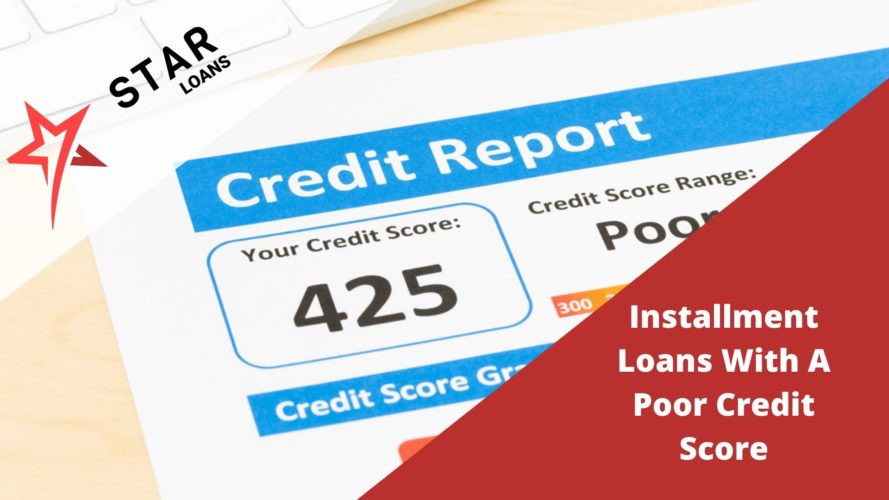
With a Nebraska bad credit installment loan, borrowers can borrow a certain sum of money and repay it over time according to a predetermined repayment schedule. These loans are often unsecured, which means borrowers don’t have to put up collateral in order to acquire the loan. They can be accessed online. Furthermore, some lenders provide installment loans without running a credit check, which is advantageous for customers with bad credit or no credit history. Before accepting any offers, borrowers should thoroughly investigate potential lenders and familiarize themselves with the loan’s terms and conditions.
Installment Loans in Nebraska Process
The process for obtaining installment loans in Nebraska typically involves the following steps:
- Application: To begin the application process, borrowers can visit Star Loans website and fill out an online application form. The form typically requires personal and financial information, such as the borrower’s name, address, income, and employment status.
- Approval: After the borrower submits the application, the lender will review it and determine if the borrower is eligible for a loan. This may involve a credit check or other verification process.
- Loan terms: If the borrower is approved for a loan, the lender will provide the loan terms, such as the loan amount, repayment schedule, and interest rate.
- Acceptance: If the borrower agrees to the loan terms, they can accept the loan offer and provide any additional information or documentation required by the lender.
- Funding: Once the lender has all the necessary information, they can fund the loan. This typically involves transferring the funds directly to the borrower’s bank account.
- Repayment: Borrowers are responsible for making regular payments according to the agreed-upon repayment schedule. Payments can typically be made online or by phone, and may be automatically deducted from the borrower’s bank account.
Eligibility Criteria for NE Installment Loans
The eligibility criteria for installment loans in Nebraska may vary depending on the lender and the loan amount. However, some common requirements may include:
- Age: Borrowers must be at least 18 years old to be eligible for a loan.
- Identification: Borrowers must provide a valid government-issued ID, such as a driver’s license or passport.
- Income: Borrowers must have a steady source of income, such as a job or regular benefits, to demonstrate their ability to repay the loan.
- Bank account: Borrowers must have an active checking account in their name to receive the loan funds and make payments.
- Credit check: Depending on the lender, a credit check may be performed to determine creditworthiness. However, some lenders may offer installment loans without conducting a credit check.
It is important for borrowers to carefully review the lender’s eligibility requirements before applying for a loan. Additionally, borrowers should consider their own financial situation and ability to repay the loan before accepting any offers.
Pros and Cons of Installment Loans in Nebraska
Pros of installment loans in Nebraska include:
- Flexible repayment terms: Installment loans offer borrowers the flexibility to repay the loan over a fixed period, with predictable monthly payments.
- Easy application process: Many lenders offer installment loans online, making it convenient for borrowers to apply from the comfort of their own homes.
- No collateral required: Many installment loans in Nebraska are unsecured, meaning borrowers don’t need to put up collateral, such as a car or home, to obtain the loan.
- Opportunity to build credit: Regular payments on an installment loan can help improve a borrower’s credit score over time.
- Fast access to funds: If approved, borrowers can usually receive the loan funds within one to two business days.
Cons of installment loans in Nebraska include:
- High interest rates and fees: Installment loans may come with higher interest rates and fees than other types of loans due to the increased risk for the lender.
- Risk of default: If a borrower is unable to make payments on the loan, they may default and be subject to additional fees and penalties.
- Potential impact on credit score: If a borrower defaults on an installment loan, it can have a negative impact on their credit score.
- Unregulated lenders: Some lenders may operate outside of state or federal regulations, making it important for borrowers to carefully research and choose a reputable lender.
Overall, installment loans in Nebraska can provide borrowers with a convenient and flexible way to borrow money, but they should be used responsibly and with caution. It is important for borrowers to carefully review the lender’s terms and conditions and consider their own financial situation before accepting any offers.
Nebraska Installment Loans: How They Are Regulated
Are Installment Loans legal in Nebraska?
Loan Rates and Fees, Laws and Regulations in Installment Loans. Consumer loan act imposes some restrictions on Installment Loans in Nebraska. But one can legally apply for $1000 - $5000 Installment and $5000 - 35,000 Personal loans. According to Md. Code Com. Law § 12-101 et seq.1 and Senate Joint Resolution 7 of 20022 the APR on Payday cash advance mustn’t exceed 2.75% per month; 33% per year.
| Legal Status | Legal |
|---|---|
| Minimum Loan Amount | $1000.00 |
| Maximum Loan Amount | $5000.00 |
It is important to note that regulations may vary depending on the lender and the loan amount. Borrowers should carefully review the lender’s terms and conditions and ensure they understand the repayment schedule and any fees or penalties associated with the loan.
Alternatives to Installment Loans in Nebraska
In addition to installment loans, there are several alternative types of loans available in Nebraska, including:
Car title loans are a type of secured loan that uses a borrower’s vehicle as collateral. These loans typically have high interest rates and fees, and failure to repay the loan could result in the loss of the borrower’s vehicle.
Payday loans are short-term loans designed to be repaid with the borrower’s next paycheck. These loans often have high interest rates and fees, making them a more expensive option than installment loans.
Personal loans are typically unsecured loans that can be used for a variety of purposes, such as debt consolidation, home repairs, or unexpected expenses. These loans may require higher credit scores to qualify and often have shorter repayment terms.
Credit Score Required for Installment Loans in Nebraska
The credit score required to obtain an installment loan in Nebraska may vary depending on the lender and the loan amount. However, many lenders may consider credit scores of 580 or higher to be good, while scores below 580 may be considered subprime. It is important to note that credit score is just one of several factors that lenders may consider when determining eligibility for a loan. Lenders may also consider factors such as income, employment history, and debt-to-income ratio when making a lending decision. Borrowers with lower credit scores may still be eligible for installment loans, but may be subject to higher interest rates and fees.
Borrowers with higher credit scores may be able to obtain installment loans with more favorable terms, such as lower interest rates and fees. It is important for borrowers to carefully review the lender’s terms and conditions and ensure they understand the repayment schedule and any fees or penalties associated with the loan.
The Bottom Line
In Nebraska, installment loans give consumers a flexible way to borrow money with a predetermined payback schedule. These loans are often unsecured, which means borrowers don’t have to put up collateral in order to acquire the loan. They can be obtained online or in person. Installment loans may be an excellent choice for borrowers with bad credit or no credit history because they offer regular monthly payments and easy access to funds. Before accepting any offers, however, customers should thoroughly investigate lenders and understand the terms and conditions of the loan because installment loans could have higher interest rates and costs. Before accepting any offers, borrowers should carefully assess their own financial status and capacity to repay the loan.



